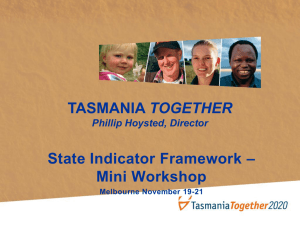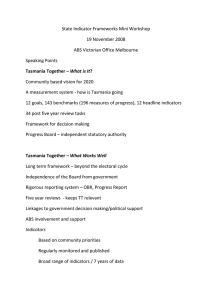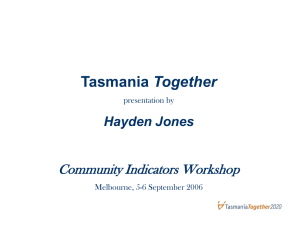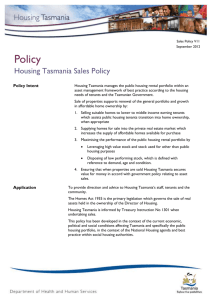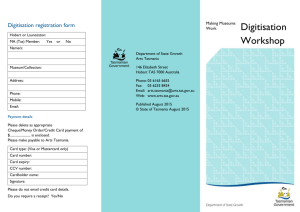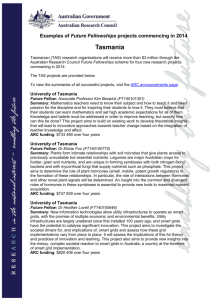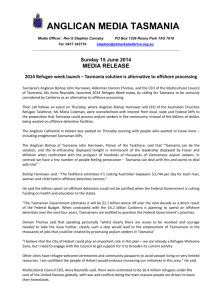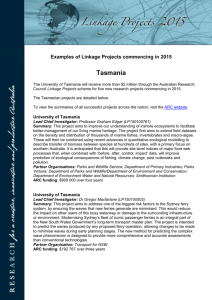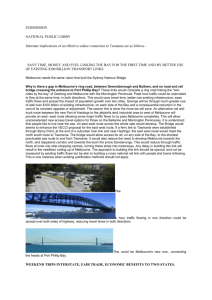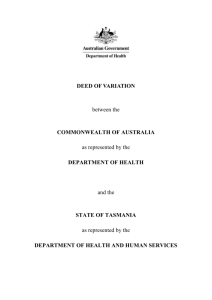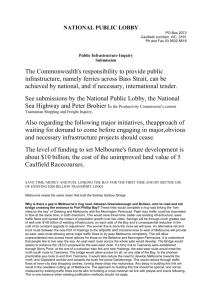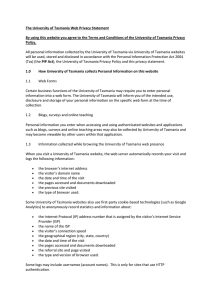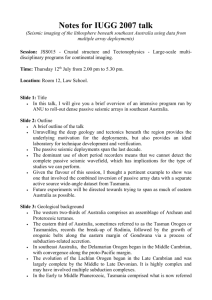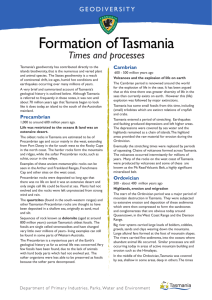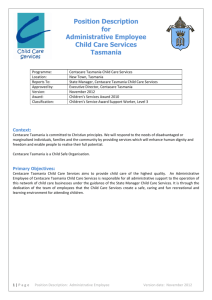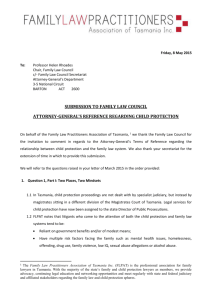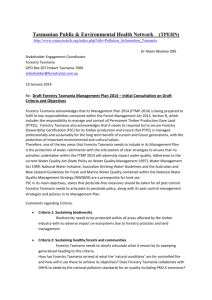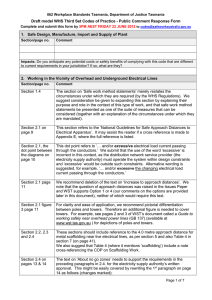David Lewis (Barrister, Tasmania) - Attorney
advertisement
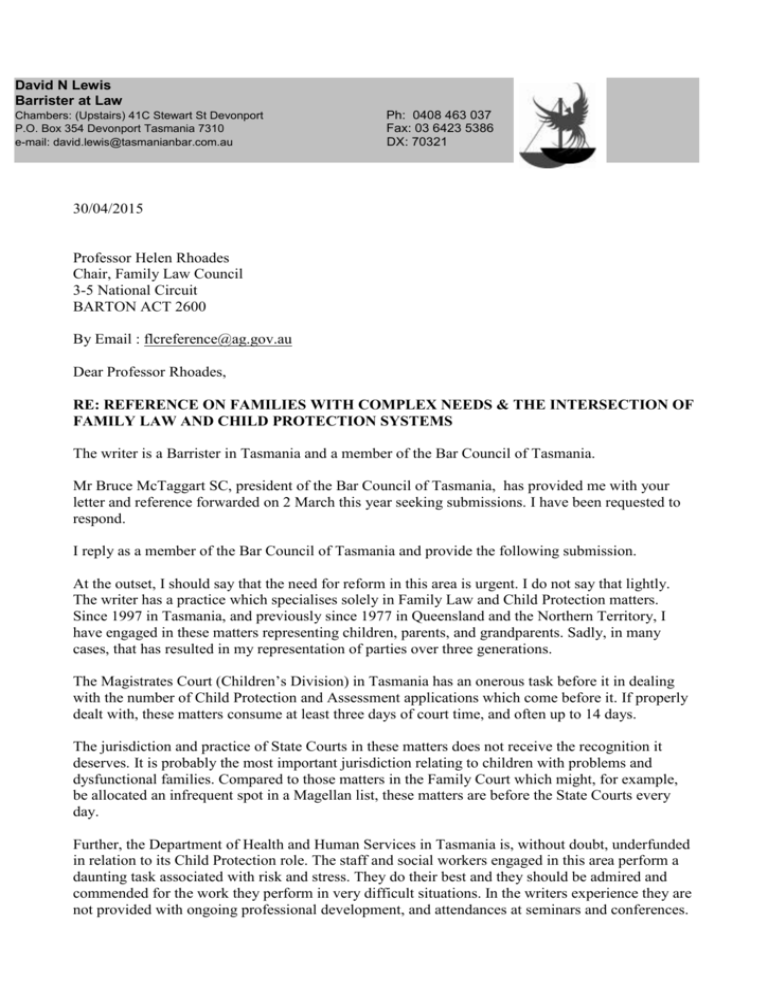
David N Lewis Barrister at Law Chambers: (Upstairs) 41C Stewart St Devonport P.O. Box 354 Devonport Tasmania 7310 e-mail: david.lewis@tasmanianbar.com.au Ph: 0408 463 037 Fax: 03 6423 5386 DX: 70321 30/04/2015 Professor Helen Rhoades Chair, Family Law Council 3-5 National Circuit BARTON ACT 2600 By Email : flcreference@ag.gov.au Dear Professor Rhoades, RE: REFERENCE ON FAMILIES WITH COMPLEX NEEDS & THE INTERSECTION OF FAMILY LAW AND CHILD PROTECTION SYSTEMS The writer is a Barrister in Tasmania and a member of the Bar Council of Tasmania. Mr Bruce McTaggart SC, president of the Bar Council of Tasmania, has provided me with your letter and reference forwarded on 2 March this year seeking submissions. I have been requested to respond. I reply as a member of the Bar Council of Tasmania and provide the following submission. At the outset, I should say that the need for reform in this area is urgent. I do not say that lightly. The writer has a practice which specialises solely in Family Law and Child Protection matters. Since 1997 in Tasmania, and previously since 1977 in Queensland and the Northern Territory, I have engaged in these matters representing children, parents, and grandparents. Sadly, in many cases, that has resulted in my representation of parties over three generations. The Magistrates Court (Children’s Division) in Tasmania has an onerous task before it in dealing with the number of Child Protection and Assessment applications which come before it. If properly dealt with, these matters consume at least three days of court time, and often up to 14 days. The jurisdiction and practice of State Courts in these matters does not receive the recognition it deserves. It is probably the most important jurisdiction relating to children with problems and dysfunctional families. Compared to those matters in the Family Court which might, for example, be allocated an infrequent spot in a Magellan list, these matters are before the State Courts every day. Further, the Department of Health and Human Services in Tasmania is, without doubt, underfunded in relation to its Child Protection role. The staff and social workers engaged in this area perform a daunting task associated with risk and stress. They do their best and they should be admired and commended for the work they perform in very difficult situations. In the writers experience they are not provided with ongoing professional development, and attendances at seminars and conferences. There is a high turnover of professional staff, most of whom are young and inexperienced. There is a culture developed over many years of distrust towards practitioners representing parents; a requirement for parents to fulfil onerous and unrealistic tasks, programmes and training, just to be able to see their children whilst in care; and drastically limited resources to obtain expert opinions and advice. There is sometimes a resistance to full disclosure of information as might be expected in the Family Court or FCCA. The State Court is fettered in its discretion to order contact between parents and children due to the lack of staff and resources to enable that to occur. Often to the detriment of the child or children. Children are moved between Foster Carers or siblings separated without notice. The writer is aware that these observations are both pointed and unreserved. Nevertheless, they can be substantiated. It is not possible to give specific examples relating to individual cases as a result of the restrictions on publication contained in the Children, Young Persons and their Families Act 1997. It is suggested that the FLC might engage the Magistrates to provide some corroboration and input. In Tasmania there is a State Case Management Committee for Child Protection Matters which includes Magistrates conducting these matters. The State Legislation and Court System works as well as can be expected in the short term for applications requesting assessment of children and for Care & Protection orders up to 12 months in duration. Without the allocation of huge Federal resources there is probably no role for the Commonwealth Courts in those applications. The difficulty and problem for children arises when the application is for the children to go into care until the age of 18. Section 69ZK of the Family Law Act precludes involvement of the Federal Jurisdiction in State Child Welfare matters. Compare Section 60CC of the Family Law Act with, for example, Section 55 of the the Children, Young Persons and their Families Act 1997. The latter section is worthwhile reproducing – “55. Determining what is child's best interests (1) In determining what is in the child's best interests, the Court must consider the following matters: (a) any wishes expressed by the child and any factors (such as the child's maturity or level of understanding) that the Court considers relevant to the weight it should give to the child's wishes; (b) the nature of the relationship of the child with each of the child's guardians and with other persons; (c) the likely effect of any changes in the child's circumstances, including the likely effect on the child of any separation from – (i) either of his or her guardians; and (ii) any other child, or other person, with whom he or she has been living; (d) the practical difficulty and expense of a child having contact with a guardian and whether that difficulty or expense will substantially affect the child's right to maintain personal relations and direct contact with each guardian on a regular basis; (e) the capacity of each guardian, or of any other person, to provide for the needs of the child, including emotional and intellectual needs; (f) the child's maturity, sex, background and culture (including any need to maintain a connection with the lifestyle, culture and traditions of the Aboriginal community) and any other characteristics of the child that the Court considers relevant; (g) the need to protect the child from physical or psychological harm; (h) the attitude to the child, and to the responsibilities of parenthood, demonstrated by each of the child's guardians; (i) any other fact or circumstance that the Court considers relevant.” There are some similarities, but a significant difference is the pool of resources available to enable State Courts to properly consider the mandatory factors as against the Federal Court system. Care and Protection orders until the the age of 18 are fraught with difficulty. They are almost always opposed by parents, they require significant court time, they require significant expert involvement. The Department of Health and Human Services in Tasmania do not have the appropriate resources to properly advance these applications. The Department policy is that upon an order of this nature, the parent or parents should spend time with the child or children solely “ for the purposes of identification”. The child is allocated to a new “care team” who deal with long term orders. Changeover from team to team is usually associated with minimal consultation. These orders are the ones mostly involved with generational dysfunction, and serious psychological and emotional problems in children. State Magistrates Courts have difficulty finding time to hear these applications, and they are usually allocated bits and pieces of time over several months. There is, accordingly, a role for the Family Court or the Federal Circuit Court. It is suggested that the Family Law Act be amended so that where an application is made to a State Court for the care and protection, or custody and guardianship of a child until the age of 18, an application may also be made for the transfer of that application to the Family Court or the FCCA, and that in those circumstances the superior court may, and has discretion to, transfer the matter. That would require an appearance by the relevant authority, it's consent or otherwise, and is constitutionally available to federal legislators. Due to the superior resources of the Federal Jurisdiction, it may well be that similar provisions to Rule 8.02 of the Federal Circuit Court Rules should apply in relation to any application for a transfer. It is likely to be welcomed by state jurisdictions to ease an otherwise improperly funded burden. In addition it provides what is likely to be an uncontroversial jurisdiction to a limited but important range of applications. These submissions are provided in relation to the first two questions under the reference from the Attorney General as requested. Further submissions in relation to the 3rd and 4th questions will be provided as requested by 15 September 2015. Yours faithfully, David N Lewis
